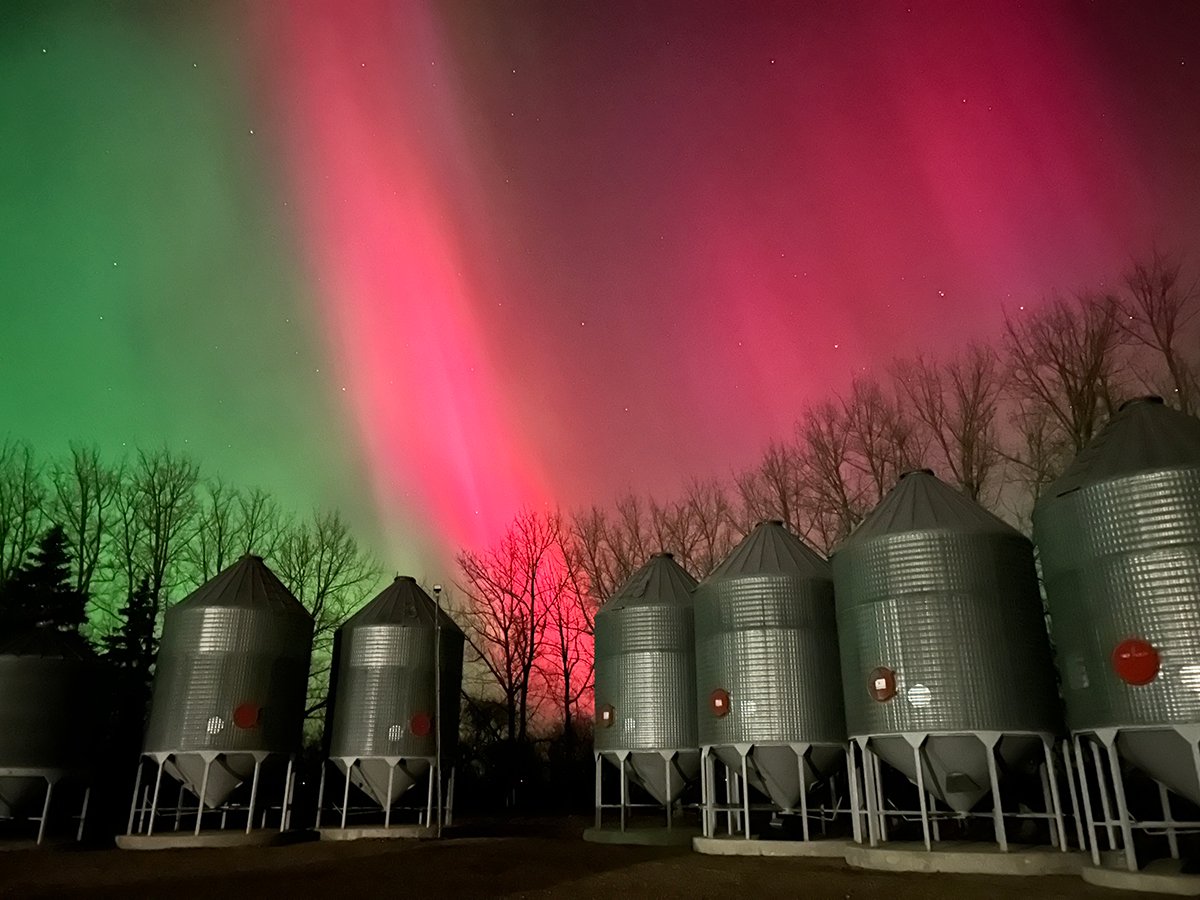Q: My wife is worried that I am about to burn myself out. We have a small farm that I am slowly building by working at a demanding job in the oilpatch. We have two small children whom we love but who require time and care. We try to keep active in our little church. Do you think that this is too much?
A: We do not usually consider the farming community when we talk about occupational burnout. I have no doubt that at times you get tired trying to keep up to all of the demands in your daily routine. But fatigue is different than burnout. Tired as you are, I read in your letter enthusiasm for your farm, family and community.
Read Also

Powerful solar storm lights up night time sky
Prairie skywatchers have been on high alert the last few nights as spectacular aurora displays have made the night time…
People who are burned out are not enthusiastic. They are just the opposite.
They are cynical, not believing that the world will ever get better, and they have lost confidence that anything they do will make any difference to their well-being. So they just go through the practice of participation, with no commitment, and certainly no energy. They have given up.
People who are burned out worry a lot and feel unappreciated. They are irritable, they dread going to work, and they often look as though they are overwhelmed. Many are on their way to major depressive episodes.
Burnout is not necessarily caused by overwork. It is more likely caused by not getting rewards and recognition for the work that has been done.
Our agricultural economists are predicting a favourable year for the farm economy. This is the first sign of optimism that we have had for a number of years. We have had droughts, floods, poor prices, BSE and unfair trading practices for too long.
Many of our friends and neighbours have worked long hours, only to watch their assets shrink and their net worth dwindle. They are not getting the rewards for which they worked.
Some are not able to retire as they had planned and others are not able to support their children as they had hoped.
They might have survived, but just barely, and their enthusiasm in the spring is tempered with misgivings and pessimism. They are in the danger zone for burnout.
Farmers who have survived the difficult years find rewards other than money for their efforts. Some enjoy working the land, others get the same pleasure working with their animals and many appreciate their independence.
The more they can enjoy these alternative rewards, the less likely they will burn out in the midst of financial uncertainty.
Jacklin Andrews is a family counsellor from Saskatchewan who has taught social work at two universities. Mail correspondence in care of Western Producer, Box 2500, Saskatoon, Sask., S7K 2C4 or e-mail jandrews@producer.com.














